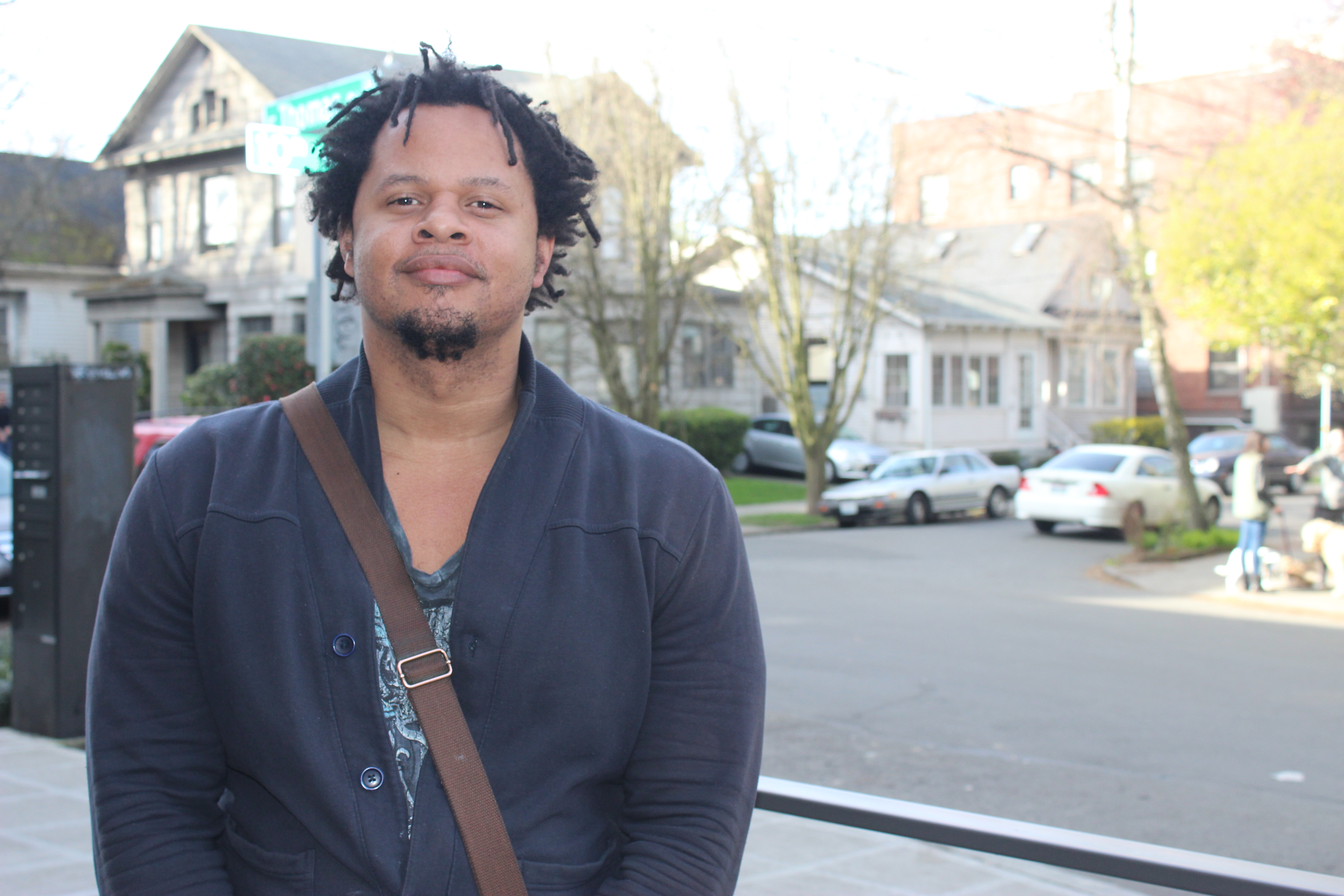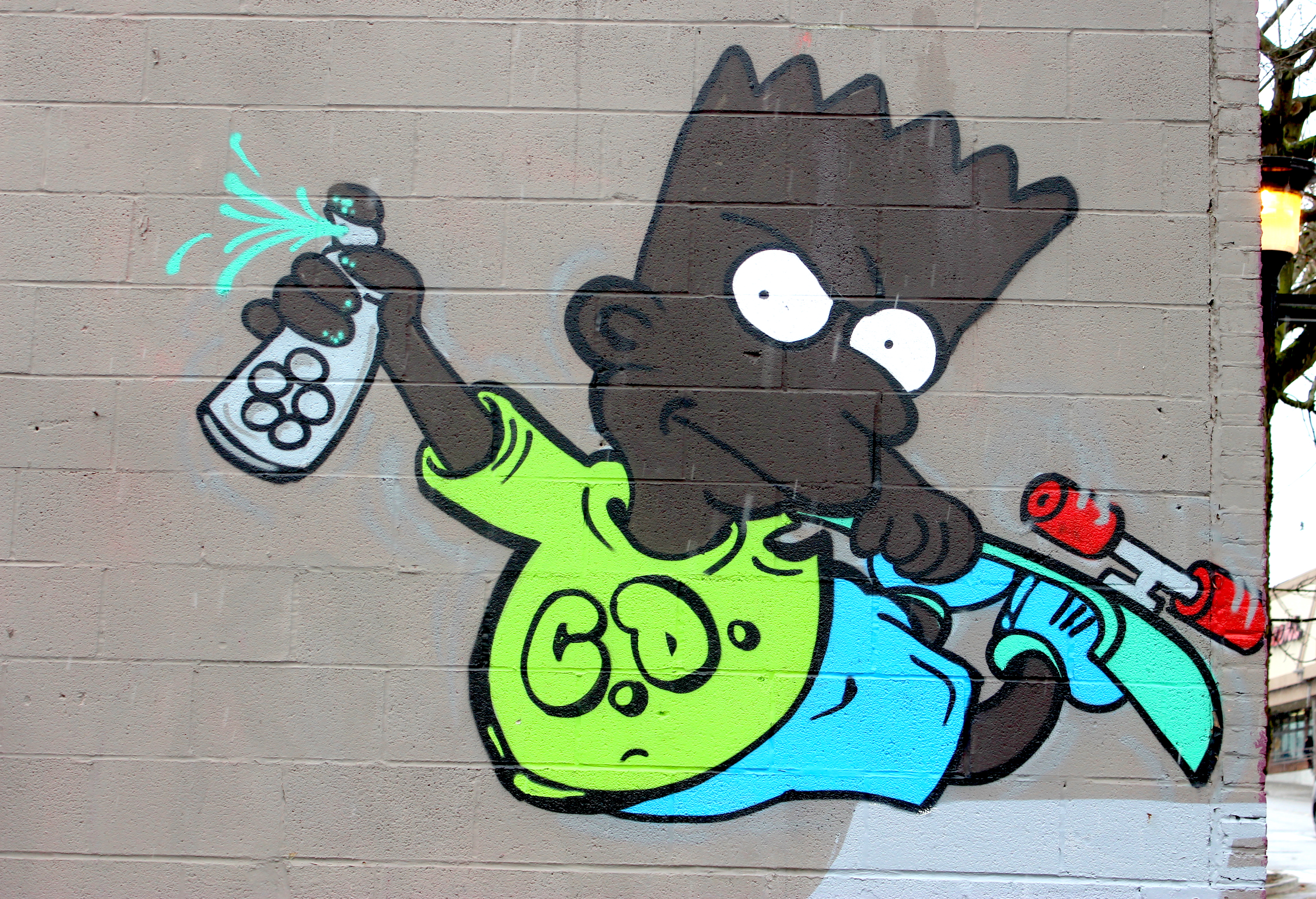When a Missouri grand jury decided not to indict Officer Darren Wilson in the shooting death of Michael Brown, Seattle’s Evan Flory-Barnes says he felt overloaded. As with many other Americans—African-Americans in particular—a distinct sense of injustice and anger welled up within him.
“It was tough—at first I was mad and letting it rip online and not giving a damn,” Flory-Barnes says. But the words clacking out from his keyboard weren’t working. He needed another outlet. “Yeah, there’s outrage that needs to be felt and it’s important for that to be felt, but once you are done feeling the outrage, you’ve got to feel the sadness.” Sadness doesn’t translate well in the reactionary world of online commenting, so Flory-Barnes, a musician and composer, called upon his particular talents to express what words couldn’t. “I wrote this song and posted it . . . it was like that’s the only way I knew how to do it.”
Flory-Barnes posted a video of himself playing the song, “Meditation for Michael (An Attempt to Return Innocence Stolen),” to Facebook. Very quickly his wall filled with comments effusive with thanks.
“Pretty much how I’m feeling,” one commenter wrote.
“Much more said than any words could, you know?” wrote another.
“Man are you on the right path.”
He realized that he might be on to something.
//
//
//
(function(d, s, id) { var js, fjs = d.getElementsByTagName(s)[0]; if (d.getElementById(id)) return; js = d.createElement(s); js.id = id; js.src = “//connect.facebook.net/en_US/all.js#xfbml=1”; fjs.parentNode.insertBefore(js, fjs);}(document, ‘script’, ‘facebook-jssdk’));
//
Post by Evan Flory-Barnes.
Nine days into 2015, Flory-Barnes took to Facebook again, and this time typed a very unusual post.
“Comments sections will not cut it,” he wrote. “Tomorrow I will be at Cafe Solstice on 10th Ave and Thomas on Capitol Hill from about 1-4:30pm. I love the power of the internet, but too many things are arising to deal with via the comments section. There is a violence that’s amplified due to a lack of engagement. This is hurting us. The antidote is immediate and informal community. Providing that space tomorrow. Let’s hang and be human beings together.”
The invitation was radical, but it was also such a simple, obvious thing. Talking to people, in person, about things.
Flory-Barnes’ call to humanity is in line with a recent trend. Widely circulated articles including Asam Ahmad’s “A Note on Call-Out Culture,” Jon Ronson’s “How One Stupid Tweet Blew Up Justine Sacco’s Life,” and Slate’s year-end retrospective, “The Year of Outrage 2014,” all ask a similar question: Is yelling at each other online the best way to do the Internet?
Three months after Flory-Barnes’ initial post, I took the bait. I sat down one-on-one with him at Cafe Solstice to talk about this ritual he’s created, which he has dubbed the “Holistic Hang.” He says that since that initial post, he’s held three Holistic Hangs, all successes in his eyes. Old, young, artists, immigrants, black, white: All have joined him at a table to talk about whatever, and according to him, it feels like healing. He plans to turn the gatherings into a regular event.
“I feel like informal space with people, it’s truly an act of subversion,” Flory-Barnes says. “If you have a group of people hanging out, and it’s truly a wide range of people, you find this common ground, and the common ground is being human. And then if someone posts some story about this horrible atrocity happening here, or this dire injustice over here—in your own immediate experiential reality, you’re experiencing harmony, connection, warmth, celebration of diversity.”
Flory-Barnes is a musical omnipresence—a staple, with his upright bass, at the revered weekly Lovecitylove improv nights, a core member of the celebrated local genre-defying jazz group Industrial Revelation, and an original composer you can find playing solo gigs all over the city. And like many great jazz musicians, he’s also a self-taught philosopher. He casually quotes the Dalai Lama, Carl Jung, Ram Dass, Chogyam Trungpa, Wayne Dyer, and Eckhart Tolle throughout our chat. He even has a name for his own personal philosophy: “endotheistic humanism.”
“The idea of some dude in the sky judging people has never been what God is about to me,” Flory-Barnes says. “The ‘endotheistic’ in my philosophy refers to the idea that the God is within us all and connects us all. The humanism is—it’s more important to create goodness between human beings, no matter how unique their perspective is, than to have war over the truths. The idea that there’s one truth that can win just doesn’t sit with me.”
It’s a philosophy at odds with the call-out culture that has consumed social media, but Flory-Barnes has no plans to abandon the Internet. He continues to post unexpected thoughts and declarations that cut through our endless cycle of outrage with their borderline-defiant positivity.
“I had a teacher who once told me, you can’t get angry enough to heal all the atrocities of the world. You can’t get sick enough to heal people who are sick,’” Flory-Barnes says.
“I believe that.”
ksears@seattleweekly.com








